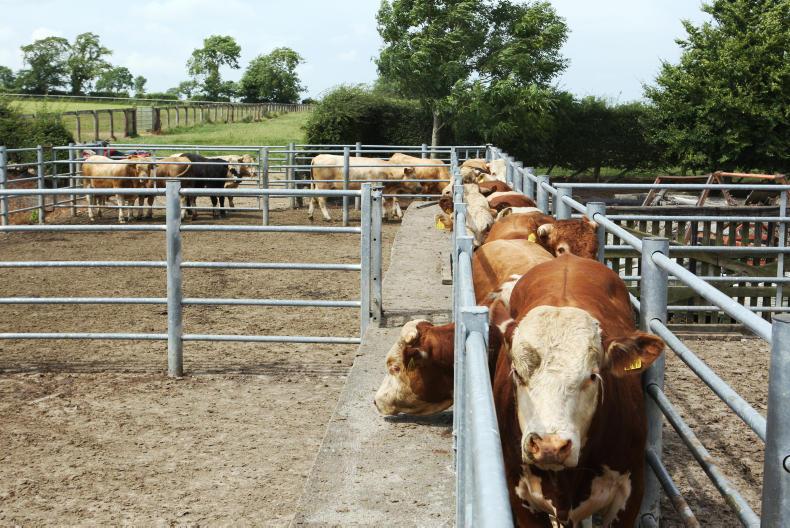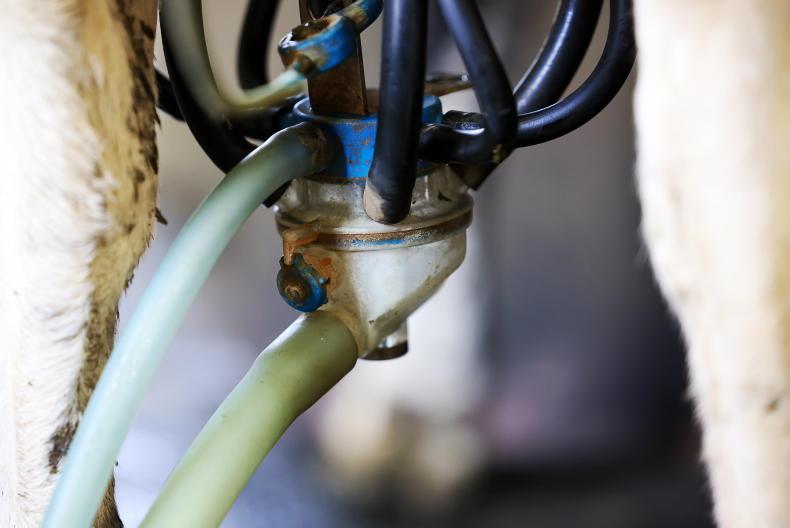There has been a growing number of queries regarding farm-to-farm movements in recent weeks and this is likely to intensify following the Government’s blanket closure of all marts on Tuesday.
Marts are unable to hold sales from midnight on Tuesday 24 March until at least 19 April, but livestock can still be moved outside of the auction system.
The Irish Co-Operative Organisation Society (ICOS), the largest body representing co-operative livestock marts, quickly followed the mart closure announcement with a statement highlighting that marts can still arrange for the marketing of animals.
The statement said: “We urge any farmer wishing to buy or sell livestock to contact their local mart manager.
“Marts have significant contact databases of buyers and sellers and we have a long and proud history of honouring payments to farmers. We will continue to offer these services to farmers and ICOS mart managers will be considering how we can best serve our customers during this difficult time.”
Associated Livestock Marts has also issued a similar response. “We will work with our farmers to broker deals facilitating procurement of stock, ensuring a fair price is being achieved while ensuring all is being done in a professional and correct manner. To this end, if you have stock to sell or wish to purchase stock, please contact your local mart manger and make them aware.”
Farm-to-farm movements
For those partaking in farm-to-farm movements and new to the practice, it is important to know that changes to movement regulations were introduced in recent years.
The first rule remains the same, in that the keeper of animals must obtain a certificate of compliance before cattle can be moved.
In the past, an open certificate could be obtained whereby the destination did not have to be entered.
This is no longer allowed and the certificate must be secured in advance of movement.
The second change is that the movement must be confirmed to the animal identification and movement (AIM) system within seven days.
There are two avenues for carrying out the movement – online through the Department’s agfood facility or through a hardcopy application via the cattle movement notification agency.
Online movements
Farm-to-farm movements can be accessed and completed quickly online.
Once logged into your agfood account, select the tab ‘animal movement and identification’ followed by the tab ‘apply to move animals farm to farm’. This brings you to a screen where all required information can be submitted.
Firstly, select from the dropdown ‘movement to’ tab and the option ‘bovine animals to holding’. Then insert the destination herd number in the box called ‘moved to’. If the herd number is correct, it will bring up the name and address of the keeper.
The next step is moving to the list of tag numbers on the right-hand side.
Right-clicking to highlight a tag number and then using the arrows at the bottom will move the tag number to a column on the right.
When all animals have been selected, click the submit button at the bottom. This will then give you a certificate of compliance movement number, which you should record to pass on to the destination keeper who can then notify the movement online.
The movement can be notified by the destination keeper through agfood. Simply log onto agfood, select ‘notify farm movement’, enter the certificate number and click submit.
Hardcopy applications
Hardcopy applications called NBAS 31A can be downloaded from www.agriculture.gov.ie.
Once completed, they can be posted, faxed or emailed (all details on the application) to the cattle movement notification agency. If a valid application is received before 3pm, then a certificate of compliance will issue on the same date.
Security of payment
IFA president Tim Cullinan is advising farmers to use the mart network to trade livestock.
“Marts have weighing facilities and a system that provides security of payment. They also have a long track record which underpins the bond of trust between buyers and sellers. Farmers should be very careful about entering into any arrangements where payment may not be secured.”










SHARING OPTIONS